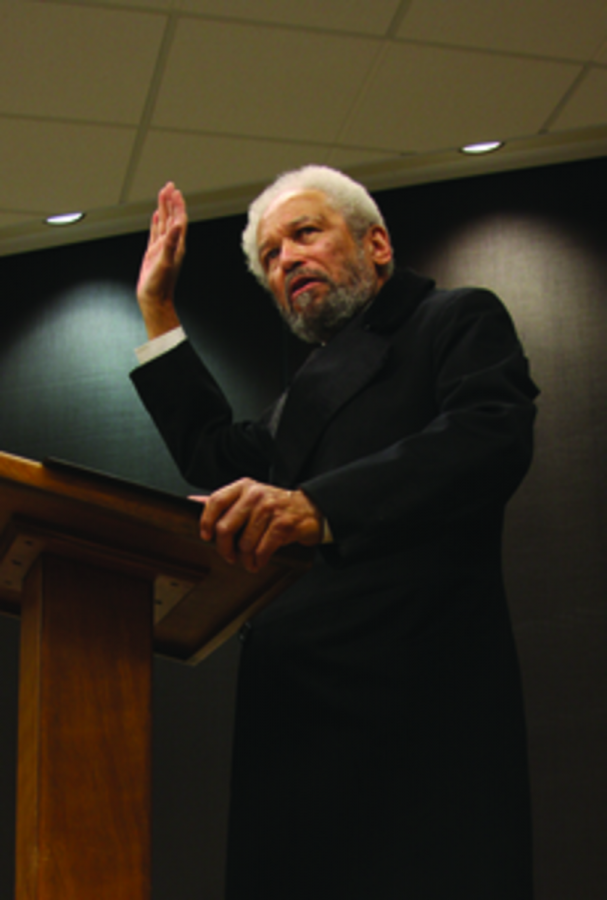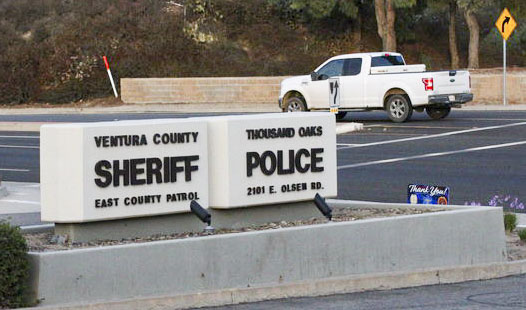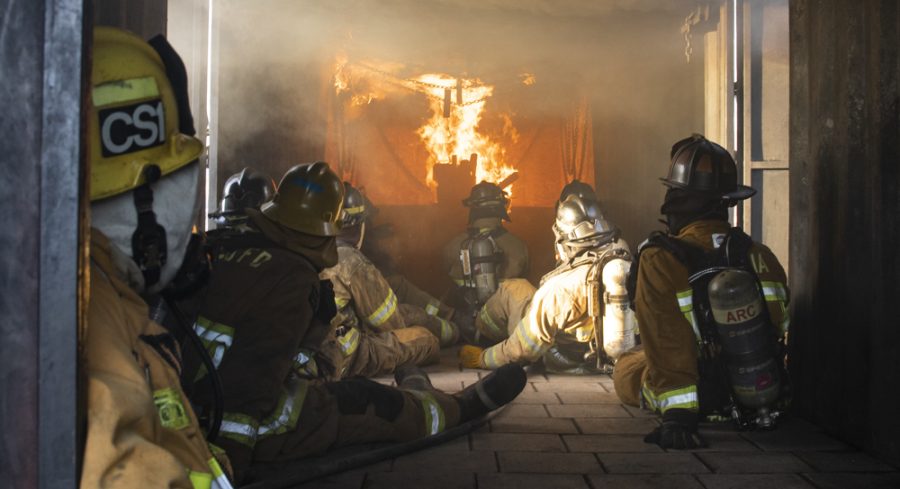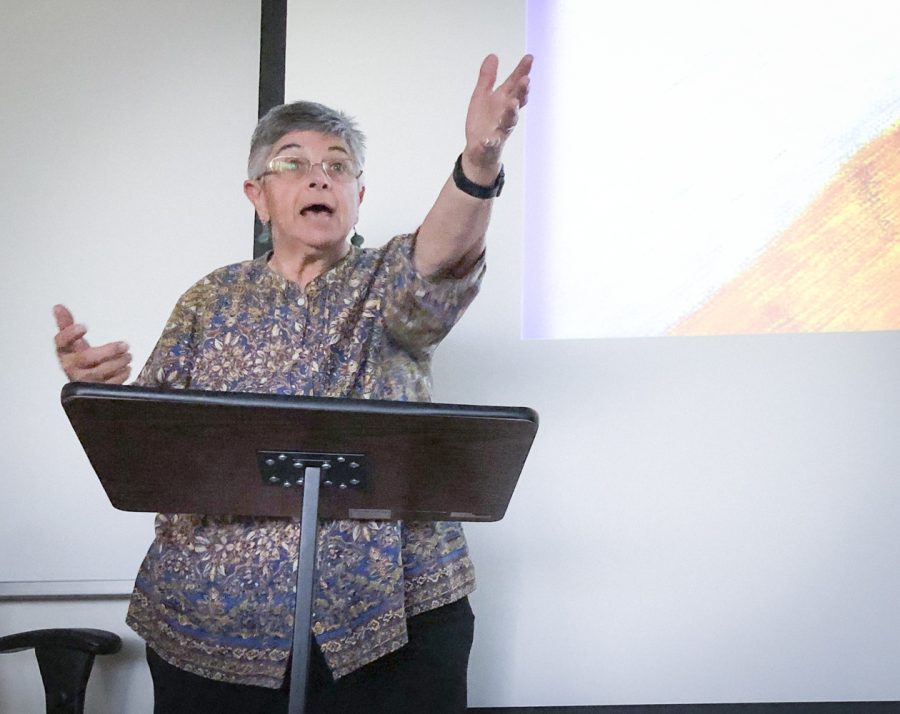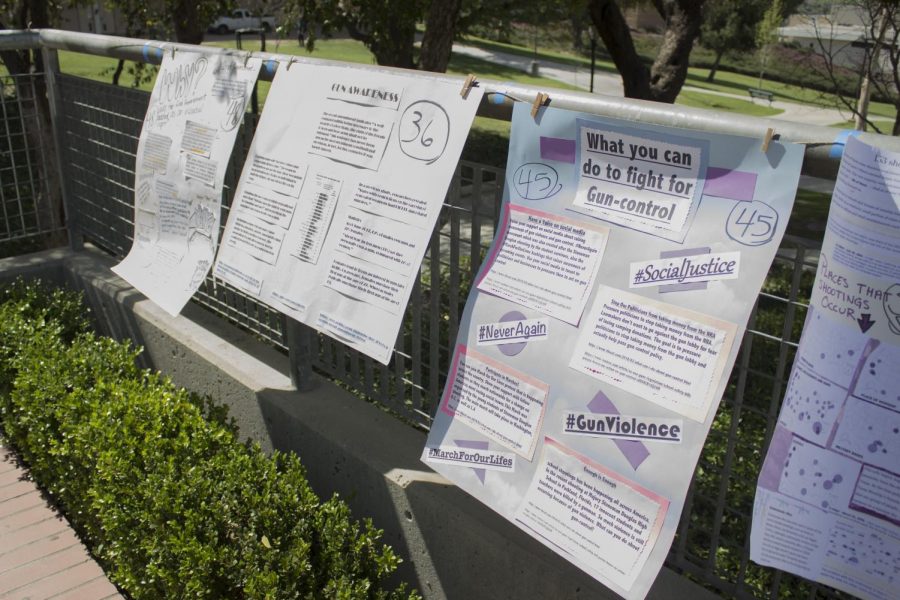The spirit of Frederick Douglass walked the floors of the LRC building at Ventura College Feb. 9, as part of the college’s celebration of Black History Month.
Lew Dauber as Jake the Historian, Leslie Perry as Frederick Douglass and Howard Marshall as a Negro spiritual singer gave an electrifying tribute to Douglass through fiery speeches, Negro spirituals and a very informative question-and-answer period at the end of the performance.
Dauber immediately gave the audience his stance and belief in scientific history. “Give me the facts,” Jake the Historian screamed. Jake proceeded to take the once sleepy-eyed and anxious crowd of diversified listeners on a journey of what it was like to be free and also what it was like to be a product of enslavement.
Through picture slides, the crowd was able to follow the historian as he zoomed through timelines, including pictures of Benjamin Franklin, who was once president of an abolitionist society in the 1700s.
The tribute was timely and put together to keep the audience alive and on their toes.
Marshall slid right into action, not quite stealing the show but making sure no one doubted or missed the authenticity of his dialect as he sang Negro spirituals to a respectful group of listeners. When asked why he decided to keep the exact dialect of the slaves, Marshall replied, “To sing a Negro spiritual any other way would take away some of the power from the song.”
Marshall also spoke of the meaning of Negro spiritual songs. “Negro spirituals were also used as a form to communicate to each other,” he said. When slaves sung about Moses, they were not talking about the Moses in the Bible, but of the Lady Moses – Harriet Tubman, legendary underground conductor, Marshall explained.
The crowd reached its highest peak when Jake the historian introduced Douglass to a thunderous applause.
Dressed in a black coat, and grey Afro, Douglass talked what it was like to live as a slave. “We were fed eight pounds of pork or the equivalence of in fish, and some cornmeal.”
Douglass was taken from his birth mother at an early age and shipped to a slave house. He spoke of his slave master being stern. “He took no nonsense,” Douglass said.
Slaves were not allowed to read and write.
“I would make friends with the little kids and ask questions about words and I would read signs and anything else I seen,” Douglass said.
Jake the Historian and Douglass volleyed back and forth about the history of slavery and the pioneers of the abolitionist movement.
Douglass put the crowd back in the 1800s when he gave a speech filled with passion and long wind.
“Don’t you have me argue that man is entitled to liberty, that he is the rightful owner of his own body? You’ve already declared it! Must I argue the wrongfulness of slavery? Is that a question for Republicans?” Douglass stated during his Fifth of July address.
The performance concluded with Marshall singing a Negro spiritual that encouraged crowd participation, followed with questions being answered by Dauber, Perry and Marshall.
If the audience didn’t feel they were in the slave days in the beginning they definitely did after singing “Down by the Riverside,” led by Marshall.

